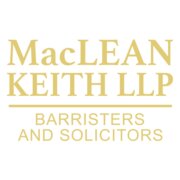Best Defamation Lawyers in Regina
Share your needs with us, get contacted by law firms.
Free. Takes 2 min.
List of the best lawyers in Regina, Canada
About Defamation Law in Regina, Canada
Defamation in Regina, like the rest of Canada, involves making a false statement about a person which harms their reputation. This can be done either through slander (spoken) or libel (written), and it must be shown that the statement was communicated to someone other than the individual it concerns. Defamation law seeks to balance the protection of individuals' reputations with the freedom of expression. Those involved in defamation cases may require adequate representation to navigate the complexities of local legal precedents and ensure fair outcomes.
Why You May Need a Lawyer
Defamation cases can be intricate and typically justify the need for legal assistance due to several potential complexities:
- Understanding whether a statement qualifies as defamation under the law.
- If you are falsely accused of making defamatory statements.
- Determining the evidence needed to support or defend against a defamation claim.
- Negotiating settlements that can often occur outside of court.
- Ensuring compliance with legal time constraints and regulations about filing a lawsuit.
Local Laws Overview
Several key aspects of local laws are particularly relevant to defamation in Regina:
- The need to prove that the statement was false and damaging to one's reputation.
- Libel is treated more seriously than slander, as written statements have a broader reach and can persist over time.
- The defense of justification, where the defendant must prove the truthfulness of the statement made.
- The possibility of bringing a claim for negligent misrepresentation if the defamation affects economic interests.
- Understanding the limitation period, as under Canadian law, actions are usually subject to a time-frame, typically two years since the date of publication.
Frequently Asked Questions
What is the difference between slander and libel?
Slander refers to defamatory statements made verbally, whereas libel involves written or published statements. Both can harm someone's reputation, but libel is often considered more serious due to its lasting nature.
How can I prove that a statement is defamatory?
To prove defamation, you must demonstrate that the statement is false, made about you, published to a third party, and caused damage to your reputation.
Can opinions be considered defamation?
Generally, opinions are not considered defamatory under Canadian law. Defamation typically pertains to statements that purport to be factual but are false.
Is there a time limit to file a defamation case?
Yes, the limitation period to bring a defamation lawsuit in Canada is usually two years from when the defamatory material was published.
What defenses are available against defamation claims?
Common defenses include truth, fair comment on matters of public interest, and privileged communications in specific contexts.
Are online statements handled differently in defamation cases?
Online defamatory statements, like those in social media, are treated similarly to offline ones but can be complex due to broader dissemination and persistence online.
Can an apology prevent a defamation lawsuit?
While an apology may not prevent a lawsuit, it can mitigate damages or lead to alternative dispute resolutions, like settlements.
What constitutes harm to reputation?
Harm can mean economic loss, mental anguish, or any damage to one’s standing in the community due to the defamatory statement.
Can I sue for defamation if the statement was made in good faith?
Yes, intent is irrelevant if the statement is false and damaging. However, good faith may affect the nature of the defenses available and damages assessed.
Can I file a defamation claim if I don't reside in Regina?
You may file if the defamatory statement was accessed in Regina, as the problematic content's reach determines jurisdiction in defamation cases.
Additional Resources
For more information, the following resources can be useful:
- Canadian Bar Association - Provides guidance and resources on defamation law in Canada.
- Public Legal Education Association of Saskatchewan (PLEA) - Offers legal information and education to the public.
- Saskatchewan Ministry of Justice - For assistance with understanding provincial justice and legal services.
- Legal Aid Saskatchewan - For those who may require financial assistance for legal representation.
Next Steps
If you believe you need legal assistance with a defamation case in Regina, consider the following steps:
- Gather any relevant evidence or documentation related to the defamatory statement.
- Contact a lawyer who specializes in defamation law for a consultation. Many offer initial consultations for free or at reduced rates.
- Consider alternative dispute resolution options, such as mediation, before proceeding with litigation.
- Stay informed and engage with the legal process actively, ensuring a clear understanding of each step.
Lawzana helps you find the best lawyers and law firms in Regina through a curated and pre-screened list of qualified legal professionals. Our platform offers rankings and detailed profiles of attorneys and law firms, allowing you to compare based on practice areas, including Defamation, experience, and client feedback.
Each profile includes a description of the firm's areas of practice, client reviews, team members and partners, year of establishment, spoken languages, office locations, contact information, social media presence, and any published articles or resources. Most firms on our platform speak English and are experienced in both local and international legal matters.
Get a quote from top-rated law firms in Regina, Canada — quickly, securely, and without unnecessary hassle.
Disclaimer:
The information provided on this page is for general informational purposes only and does not constitute legal advice. While we strive to ensure the accuracy and relevance of the content, legal information may change over time, and interpretations of the law can vary. You should always consult with a qualified legal professional for advice specific to your situation.
We disclaim all liability for actions taken or not taken based on the content of this page. If you believe any information is incorrect or outdated, please contact us, and we will review and update it where appropriate.










